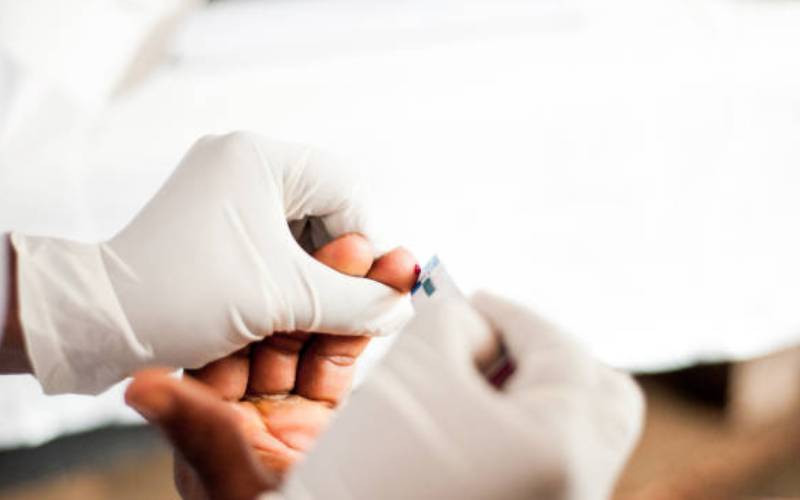The idea of utopia is to create an almost perfect world, that which is free from blemish or imperfections.
Social media is therefore seen as utopic as it connects netizens to the rest of the world.
It is difficult to fathom perfection in a world without social media, especially to kids born in the 1990s to the present era. To the baby boomers, social media is a platform to network with the business world.
Social media is, however, an integrated media channel for millennials and Generation Zs. This means that it is not only a business platform but also a social aspect in their lives.
Various authors have argued that social media has become a dystopic network, in that it has achieved bolstered cyberbullying, contributed to a lack of productivity among the youth and an increased obsession towards personal appearance.
Lost human touch
Sharing the sentiments of Sean Carton, author of “The Dot. Bomb Survival Guide: Surviving (and Thriving) in the Dot.Com Implosion”, informs us that in a world where 95 percent of young people are online, 81 per cent use social media, and the majority use smartphones to stay connected to social media 24/7, the difference between cyberspace and the real world becomes virtually irrelevant; sometimes with incredibly damaging real consequences.
One of the consequences we are currently facing is damage to our mental health. Due to the nature of today’s changing work environments, many are needed to stay glued to all the social media trends, monitor engagement and give recommendations.
This also means comparing what your competitors are doing so that you can understand their strengths and weaknesses. The nature of work can be exciting, yet flawed because one can never be too sure of what is true or what is false.
Our reactions are based on a few recommendations provided to us online. For example, in brand wars, one may be portrayed as the villain while the other is praised- thus not giving rationality space to explain itself.
Beware of that selfie!
This narrative is also witnessed in our lives where social media has become a fixture in our personal spaces. We are always ready for the selfie filtered images, applying airbrushes and increasing or reducing the sharpness to achieve the perfect Instagram story.
Thanks to such options, we have seen a crop of influencers who look younger, prettier and confident by the day. Such appearances affect young people, especially teenagers who spend most of their time looking up to their role models, and how they achieve the perfect look.
The desire to be someone else has led to the desire of a utopic world where human beings should be deemed perfect. The ideation of perfection has been reduced to how a person looks and what society views as perfection at that moment. For instance, ladies would need to have high cheekbones, perfect eyebrows, a small waist, and bigger gluteus Maximus’s among other ‘accepted’ features.
Men, on the other hand, will be deemed perfect if they have a bigger chest, built rectus abdominals and a beard game to play. Failure to meet such standards allows room for self-shame and low self-esteem to thrive in an individual’s life. Thanks to social media, such antagonistic feelings are amplified in our lives.
Stay informed. Subscribe to our newsletter
Social media has had a great influence on mental health. Psychologists have warned that those who keep up with social media for more than six hours have the tendencies to fall into depression.
We are currently living in a world full of depressed people brought about by the comparative lifestyle we want to achieve. Kenya has been listed by the World Health Organization as the sixth most depressed nation in Africa.
The chase for perfection is slowly killing the minds of the youth by showing them that they can get everything they need. We, therefore, see a generation that doesn’t appreciate how they appear- thus the increase in individuals who visit plastic surgeons; sometimes costing them their lives.
A world where face to face interaction thrives and people can laugh or express themselves without hiding is a gift that this generation might never comprehend.
The reality is that social media provides room for isolation and comparative analysis among our peers. The desire should be getting rid of the digital divide and allow people to express themselves as much as possible- as this will help reduce the risks of young people falling into depression.
Ms Odhiambo is a social media enthusiast.Twitter @amondivalerie1
 The Standard Group Plc is a
multi-media organization with investments in media platforms spanning newspaper
print operations, television, radio broadcasting, digital and online services. The
Standard Group is recognized as a leading multi-media house in Kenya with a key
influence in matters of national and international interest.
The Standard Group Plc is a
multi-media organization with investments in media platforms spanning newspaper
print operations, television, radio broadcasting, digital and online services. The
Standard Group is recognized as a leading multi-media house in Kenya with a key
influence in matters of national and international interest.
 The Standard Group Plc is a
multi-media organization with investments in media platforms spanning newspaper
print operations, television, radio broadcasting, digital and online services. The
Standard Group is recognized as a leading multi-media house in Kenya with a key
influence in matters of national and international interest.
The Standard Group Plc is a
multi-media organization with investments in media platforms spanning newspaper
print operations, television, radio broadcasting, digital and online services. The
Standard Group is recognized as a leading multi-media house in Kenya with a key
influence in matters of national and international interest.









